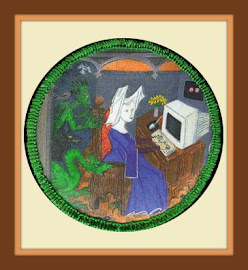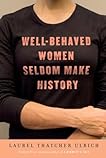In the lead up to the election, I was reading a lot online: scanning the news, looking at polling data, etc. I was also stuck in the middle of a dense book that took a lot to get through. But, now that the election is over, I have been able to clear off a few things that have been sitting around.
With Child: Mormon Women on Mothering. Edited by Marni Asplund-Campbell. I ordered this in the wee hours of one morning that baby Z wasn't sleeping. I had heard about it before and was interested. It's a collection of essays--mostly personal, but some poetry and fiction, one more scholarly piece. The quality is uneven and I thought it needed more editing to give it a cohesive feeling. One of the pieces was fascinating--about a woman discovering a story about her grandmother. It wasn't until I finished it and read the follow-up essay that I realized it was a short story rather than a personal account. Anyway, my favorite was a piece by Martha Sonntag Bradley, author of the amazing book 4 Zinas. In it, she talks about her experience as a mother of daughters and seeing them go through birthing their own children. I love this part:I had the most remarkable experience during those ten minutes...I felt the tangible, palpable presence of a woman I study, Zina Diantha Young, herself a midwife present at the moment of her granddaughter, another Zina. Important to me was the warmth of the feeling, that I am sure came from her, that this was the most important miracle I would ever witness and that everything would be okay. That my daughter would be able to handle what this baby would bring to her and that their lives, and my own, would be better for the experience. I needed that comfort. And I believe Zina brought it to me.
This reminded me of my earlier imagination about the city of ladies. I would love to associate with both Zina Diantha Huntington Jacobs Smith Young and Martha Sonntag Bradley someday. Lies my Teacher Told Me: Everything Your American History Textbook Got Wrong. By James Loewen. I started this one a few weeks before the election since it focused on American history. It is a combination of critiquing high school history textbooks and retelling the history they got wrong. It took me a long time to get through it and I skimmed portions of it. He really wanted to show example after example of the European, white, middle class bias that text books have. I thought it could have been winnowed down a lot, and that it lacked any really helpful information for how to teach history. But, it was interesting and it has made me think about how I talk about history with my kids, especially MJ. With Thanksgiving coming up, there is some interesting things to talk about. And I had a good (although short) conversation with her after Obama's victory about the history of African Americans in our country.
Lies my Teacher Told Me: Everything Your American History Textbook Got Wrong. By James Loewen. I started this one a few weeks before the election since it focused on American history. It is a combination of critiquing high school history textbooks and retelling the history they got wrong. It took me a long time to get through it and I skimmed portions of it. He really wanted to show example after example of the European, white, middle class bias that text books have. I thought it could have been winnowed down a lot, and that it lacked any really helpful information for how to teach history. But, it was interesting and it has made me think about how I talk about history with my kids, especially MJ. With Thanksgiving coming up, there is some interesting things to talk about. And I had a good (although short) conversation with her after Obama's victory about the history of African Americans in our country. Song of the Lark. By Willa Cather. I really love Willa Cather. It's been a while since I have read anything by her, and I was glad that we did this one for bookgroup. Thea, the protagonist, is such a complicated and interesting character. The story revolves around her quest to become a singer. I don't know that I liked who she was, but I admired her and her fierce dedication to her art. Added to that were a lot of other quirky and interesting characters. Plus, Cather's writing is so beautiful. This is one of my favorite passages from the book, occurring right after Thea, as a 13 year old, takes over the attic for her room.
Song of the Lark. By Willa Cather. I really love Willa Cather. It's been a while since I have read anything by her, and I was glad that we did this one for bookgroup. Thea, the protagonist, is such a complicated and interesting character. The story revolves around her quest to become a singer. I don't know that I liked who she was, but I admired her and her fierce dedication to her art. Added to that were a lot of other quirky and interesting characters. Plus, Cather's writing is so beautiful. This is one of my favorite passages from the book, occurring right after Thea, as a 13 year old, takes over the attic for her room.The acquisition of this room was the beginning of a new era in Thea's life. It was one of the most important things that ever happened to her. Hitherto, except in summer,when she could be out of doors, she had lived in constant turmoil; the family, the day school, the Sunday-School. The clamor about her drowned the voice within herself. In the end of the wing, separated from the other upstairs sleeping-rooms by a long, cold, unfinished lumber room, her mind worked better. She thought things out more clearly. Pleasant plans and ideas occurred to her which had never come before. She had certain thoughts which were like companions, ideas which were like older and wiser friends. She left them there in the morning, when she finished dressing in the cold, and at night, when she came up with her lantern and shut the door after a busy day, she found them awaiting her. There was no possible way of heating the room, but that was fortunate, for otherwise it would have been occupied by one of her older brothers.
A room of one's own, indeed. I long for an attic spot of my own in our house. Everyone I turn are scattered the vestiges of my children's presence. I need to find a corner and make it mine. And then, if we ever move, seriously think about finding something with the potential for a real space of my own.
There is so much in Song of the Lark to think about. I am not doing it a bit of justice with this... Wednesday Wars. By Gary Schmidt. This is a younger young adult book or an older children's book. I'm not sure what the cut-off there is. Anyway, the protaganist is an anti-hero in the form of a seventh grade boy, interestingly named Holling Hoodhood. Here's my goodreads review.
Wednesday Wars. By Gary Schmidt. This is a younger young adult book or an older children's book. I'm not sure what the cut-off there is. Anyway, the protaganist is an anti-hero in the form of a seventh grade boy, interestingly named Holling Hoodhood. Here's my goodreads review.
Cross the normal travails of a seventh grade boy with the turmoil of 1967-1968, throw in an English teacher with a penchant for diagramming sentences and Shakespeare, a peace loving, flower child sister, and two distant and neglectful parents, not to mention two rogue rats, and a delightful coming of age story emerges.
Here's the NYTimes review of it.
Sunday, November 16, 2008
Reading Of Late
Labels:
Book Group,
Off the Stacks
Subscribe to:
Post Comments (Atom)












1 comment:
I really enjoyed lies. I actually just had a conversation with C about the true story of thanksgiving.
Post a Comment